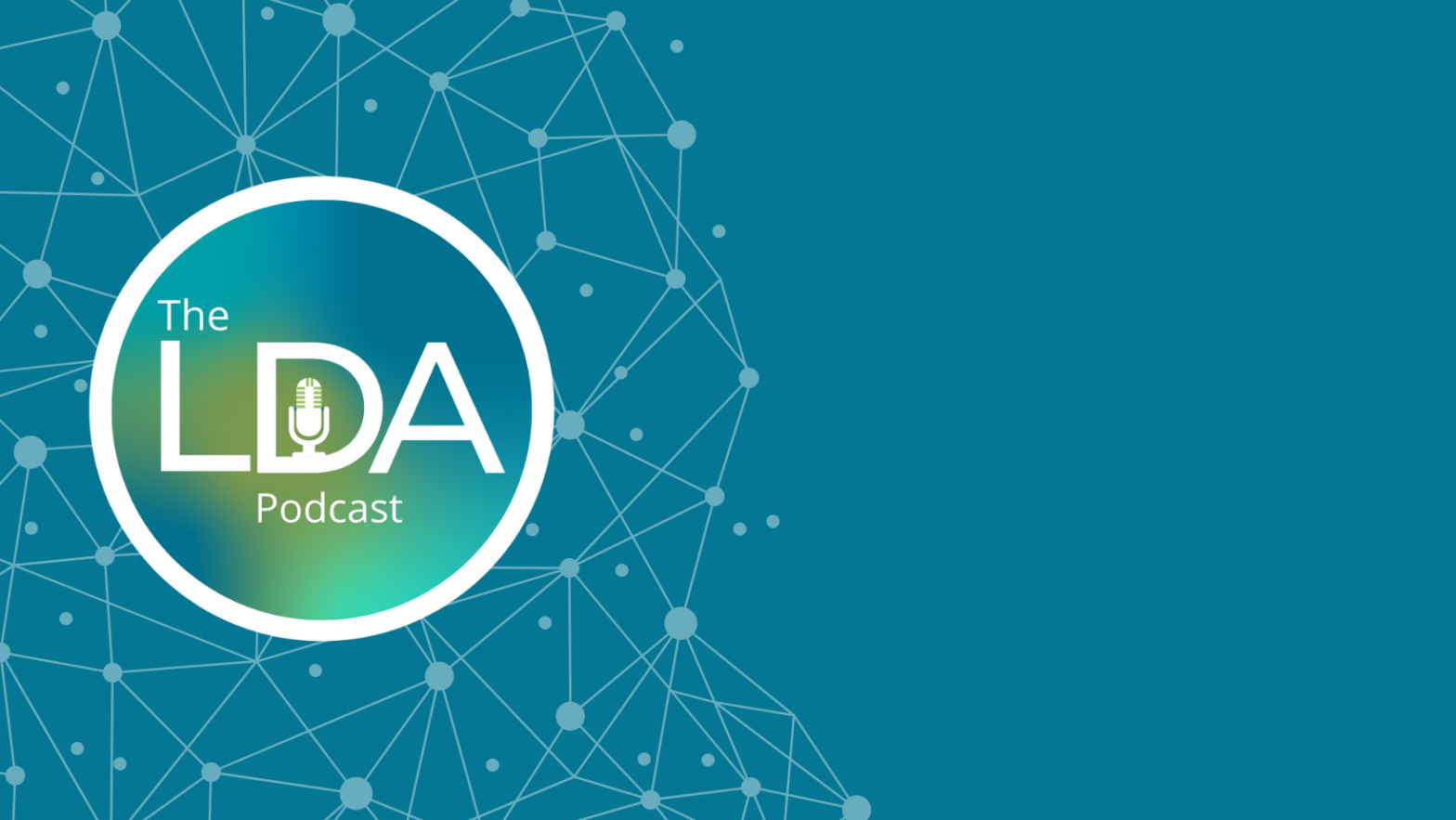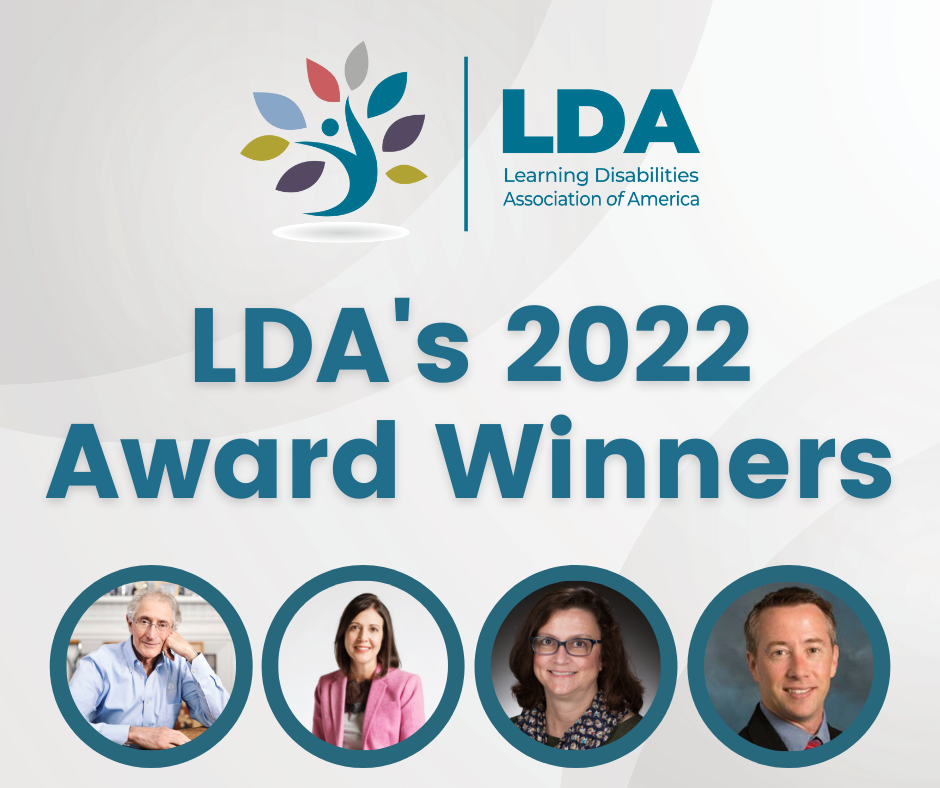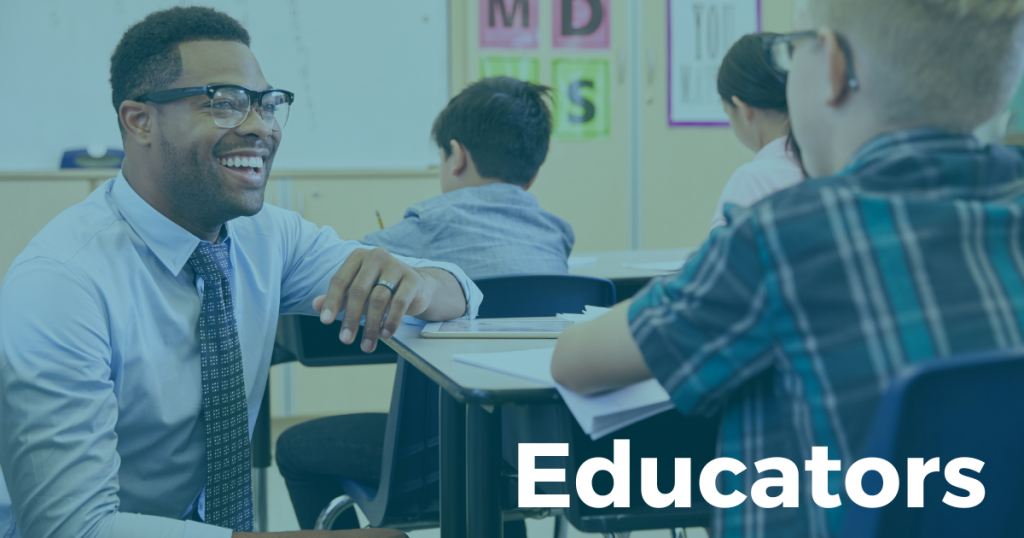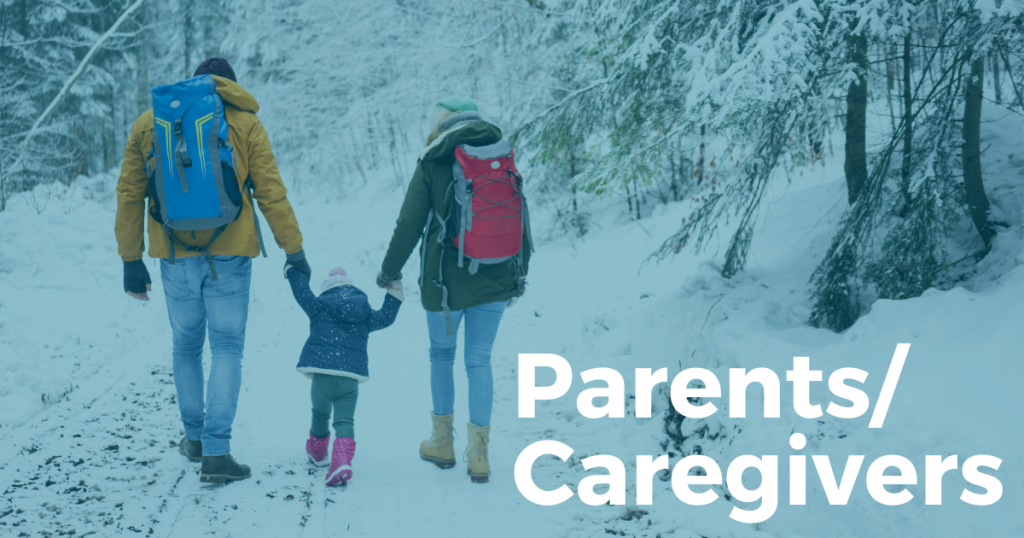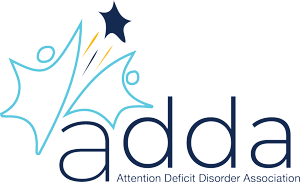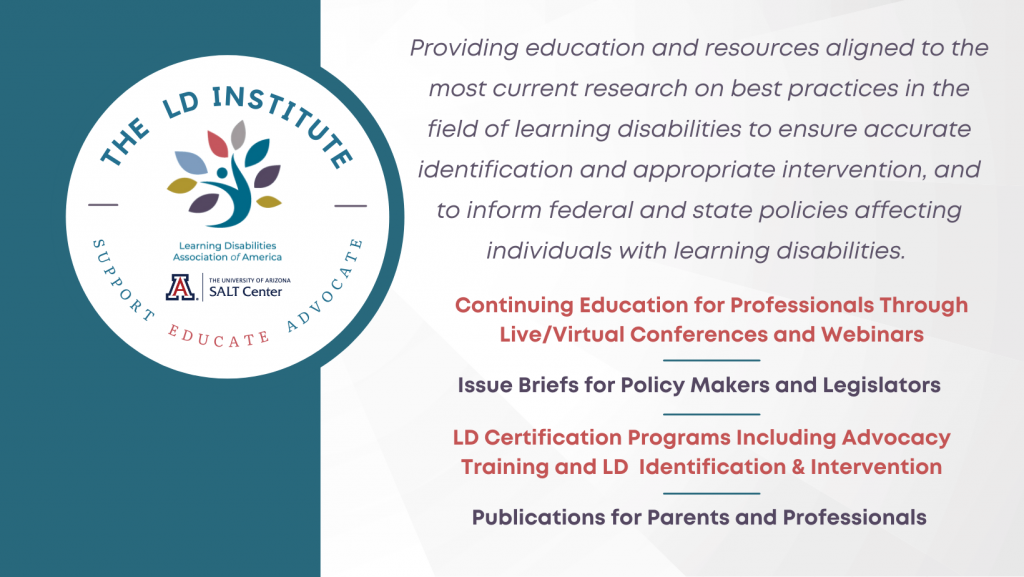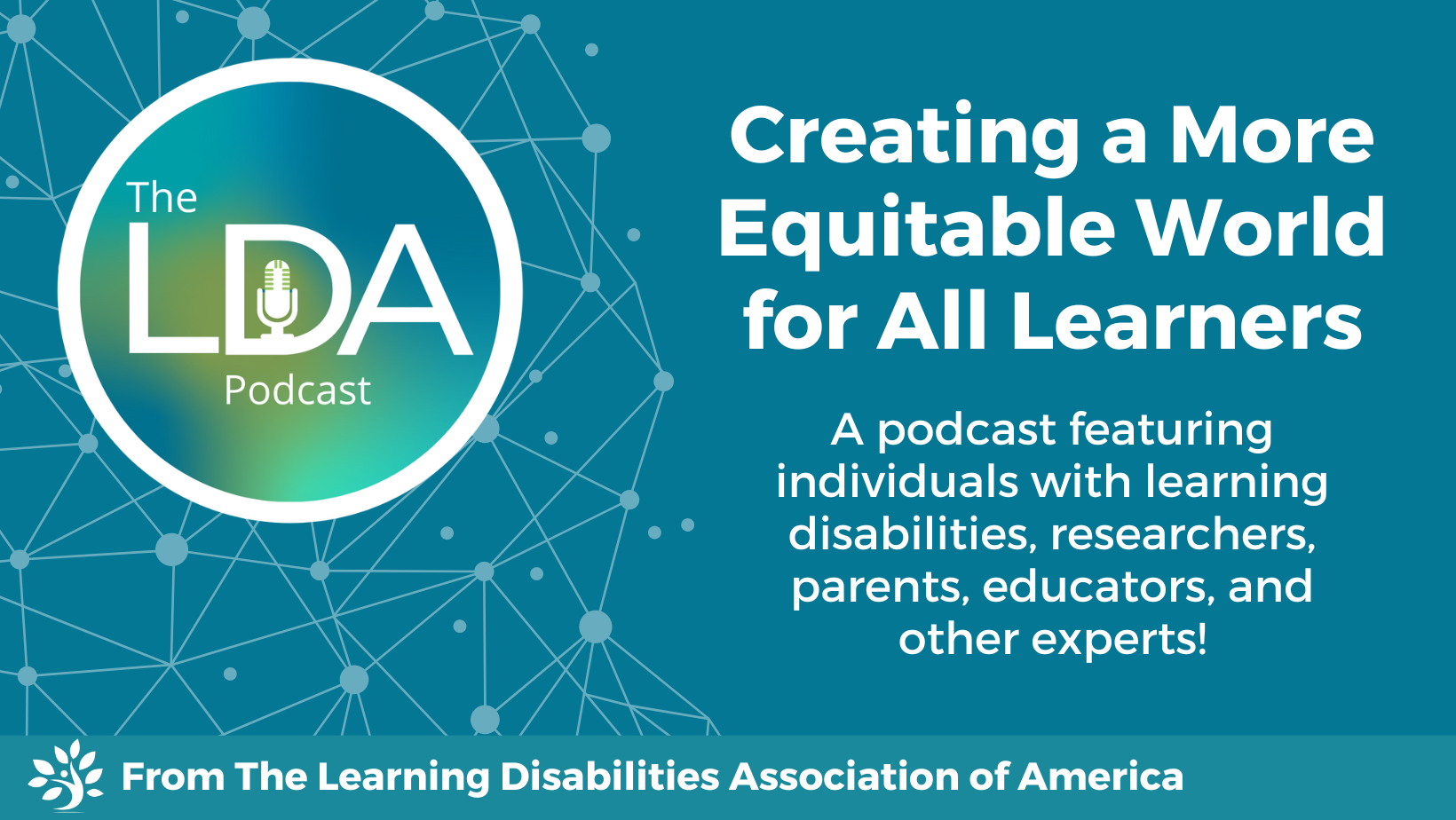
Episode 61: Anxiety: A Parental and Professional Perspective
Bev Johns, a learning and behavior specialist, and parent Rachel Krueger, members of LDA’s Mental Health Committee, provide insights into the prevalence of anxiety, the impact of anxiety in children with learning disabilities in school, strategies for educators and parents to support those dealing with anxiety, and more!
Episode 60: A Talk with the Let’s Talk Learning Disabilities Podcast
Educational diagnosticians Laurie Peterson and Dr. Abbey Weinstein are co-hosts of the popular Let’s Talk Learning Disabilities Podcast, and join us to talk about the inspiration for the podcast, the meaningful impact it has on it’s listeners, and more!
Tune in to the Let’s Talk Learning Disabilities Podcast at: https://ltldpodcast.com/
Listen to DJ’s episode at: https://ldaamerica.org/ltldDJ
Episode 59: Standardizing Learning Disability Evaluations: LDA’s Principles & Standards
Currently schools in the U.S. can utilize three different evaluation methods when assessing children for learning disabilities, which can lead to learning disability identification varying from school to school. LDA’s Education Director Dr. Monica McHale Small was a co-writer of LDA’s principles and standards for evaluation, and shares why standardization of evaluations is so important, what’s essential to consider in an evaluation, and how listeners can push for LD evaluation standardization.
Episode 58: HCP: The Impact of Chlorpyrifos and Neurotoxins: Advocating for Children’s Brain Health
Tracy Gregoire, the Director of LDA’s Healthy Children Project, and Noorulane Jan, an associate attorney at Earthjustice, delve into the need to ban Chlorpyrifos, a dangerous chemical used in farming, and its impact on children’s brain health.
Episode 57: Special Education Knowledge is Power: A Talk with the DC Special Education Hub
We talk to Hannah Blumenfeld-Love, a past special education teacher and current program manager of the DC Special Education Hub, about how navigating special education can be intimidating for parents and caregivers, how essential parents are to the special education team, and how schools can work to make information and resources about special education more accessible.
Learn more about the DC Special Education Hub at: https://specialeducation.dc.gov/
Episode 56: Empowering Self-Knowledge for Neurodiverse Students: A Discussion with Caroline Weaver
Caroline Weaver is an LD advocate, a past research student at the LEaRN Lab, and a current graduate student in the Department of Education at the University of Pennsylvania, and is using her research and lived experience to understand how we can reduce harm to neurodiverse learners in classrooms.
As a student with dyslexia and dyscalculia, Caroline Weaver faced many challenges in school. Driven by her experience, Caroline entered academic research to explore barriers to accessibility, and to create practical tools to help other neurodiverse students gain self-knowledge, self-efficacy, and self-advocacy.
Caroline’s resource page (coming soon!): https://cpweaver26.wixsite.com/advocacy-and-action
Episode 56: Making a Mark!
LDA’s Education Director Dr. Monica McHale Small discusses “Making a Mark,” a groundbreaking book co-authored with dyslexic artist Mark Stoddart, with co-author Kate McElderry and publisher Priscilla Hannaford. ‘Making a Mark” celebrates the multidimensionality of students, and addresses the strengths and challenges of those with learning disabilities.
Episode 55: Learning Disabilities and Frequent Co-Occurring Conditions with Dr. Lauren McGrath
With learning disabilities, other disorders like anxiety, ADHD, or another learning disability can frequently co-occur, and these comorbidities occur more often than chance. Dr. Lauren McGrath of the LEaRN Lab talks with us about the latest comorbidity research, best practices for interventions, what parents and educators should know, and more.
Learn more about the LEaRN Lab: https://liberalarts.du.edu/psychology/learn-lab
Effective Child Therapy Resource Mentioned: https://effectivechildtherapy.org/
Episode 54: Celebrating Young Advocates: Meet Elina Csapo!
Elina Csapo is a rising high school senior with apraxia who created Young Able Voices, a peer-to-peer support group for children and teens with hidden disabilities. Elina talks about overcoming bullying, the power of a community of support, the importance of being your true, authentic self, and more!
Learn more about Young Able Voices at: https://www.youngablevoices.com/
Episode 53: Parenting Complex Kids with a Coach-Like Approach
Elaine Taylor-Klaus, a master certified coach and co-founder of ImpactParents, discusses executive functioning, social-emotional regulation, behavior challenges, communicating with the school, and the the four phases of parenting as a way that parents can provide support while encouraging independence.
Check out ImpactParents’ free resources at: impactparents.com
Episode 52: I Went Ahead And Proved Them Wrong: A Talk with Katie Selby
Because of her language impairment and learning disabilities, Katie Selby was often told that she wasn’t ‘college material.’ After learning how to advocate for herself in high school, Katie went on to earn the degree she had been dreaming of, and now brings her life experience into the classroom as a paraeducator for students with disabilities.
Episode 51: Beyond Books: Resources and Community at Your Local Library
We talk to Carrie Banks, a supervising librarian at the Brooklyn Public Library, about the Inclusive Services Program, community-building opportunities at the library, and their universal design for learning approach. Carrie, who was once told they couldn’t become a librarian because of their dyslexia and dysgraphia, shares how they’re working to make sure the library is a place that kids with LD can find success.
Episode 50: The Power of Kindness: A Talk with Artist Mark Stoddart
Mark Stoddart, a renowned Scottish sculptor with dyslexia, has dedicated 30 years to creating captivating bronze sculptures. Many of these pieces serve a dual purpose of raising awareness and generating funds for important causes, particularly for neurodiverse education. In this episode, Mark shares his own difficult experience with school, his philanthropic work, and the importance of kindness.
Episode 49: Celebrating Young Advocates: Meet Jordan Greene!
Jordan Greene is a college freshman with ADHD, an author, motivational speaker, and an advocate for individuals with LD and ADHD. In middle school, Jordan saw the bullying she and her classmates with LD or ADHD faced, and decided to do something about it. Ever since, Jordan has worked to educate others about LD & ADHD, and is spreading the message that there’s nothing wrong with being different.
Learn more about Jordan and find her two books based on her own experience “The Confidence Club” and “My Gift of Difference” at https://www.jordanagreene.com/
Episode 48: Celebrating Young Advocates: Meet Aashna Shah!
Aashna Shah is a junior in high school, Miss Florida’s Outstanding Teen, an author of three books, a motivational speaker, and a passionate learning disability advocate.
Aashna shares her journey through her learning disability diagnosis, discusses her book series on destigmatizing learning disabilities, talks of the learning disability stigma in the Indian community, and much more!
Get to know Aashna and learn more about her awesome advocacy work in Florida!
Visit: shahaashna.com
Episode 47: Advocacy in Special Education: A Talk with an IEP Coach
“I had an IEP through high school and I really know the power of the special education system…And I feel like I’m living out the purpose of an IEP, which is to prepare you for life after high school.”
Disability advocate, speech-language pathology assistant, and IEP coach Courtney Burnett had an IEP herself growing up, and now she uses her expertise to empower parents to help students get evaluated and supported. Courtney discusses the main barriers to accessing special education, the purpose and goal of an IEP, how parents can have an active role in their child’s education, and much more!
Resources discussed in this episode include:
U.S. Department of Ed’s IDEA website
5 Questions for your IEP Meeting
Episode 46: What is NVLD?
Dr. Jessica Broitman and Dr. Jack Davis explain the challenges individuals with a nonverbal learning disability face, helpful strategies and accommodations, and how they’re part of a team working to get NVLD into the DSM.
For more information on NVLD, visit The NVLD Project.
Episode 45: Empowering Rebel Talent: A Talk with Denise Brodey
2023 Harrison Sylvester Award winner Denise Brodey is an LD & ADHD advocate, author, senior contributor to Forbes writing about disability, equity, and inclusion, and the founder of Rebel Talent, an organization that provides support to individuals with ADHD and/or learning disabilities that are struggling in the workplace.
Denise shares some of the most common issues individuals with LD & ADHD seem to face in the workplace, the importance of neurodiverse voices in media, and the future of disability inclusion in the workplace.
Hear more from Denise and find resources at: elephants-everywhere.com
Episode 44: The Gift of Being Different: Abigail’s Dyslexia Journey
Before she could even read or write, Abigail Berg and her mother, Monica, began writing “The Gift of Being Different,” a children’s book that features Abigail’s journey of learning about how her dyslexia is a superpower. Abigail and Monica join us to talk about the formation of the book, how Monica helped Abigail to find her strengths, and how they’re working to encourage others to embrace their differences.
Episode 43: LDs That Impact Writing: Teaching Strategies, Tips, and More!
“I think anybody can be a great writer, they need the support, they need the encouragement, and you need a positive attitude about it.”
Dr. Toby Tomlinson Baker shares tips and lessons from 13 years of teaching experience, and provides strategies and accommodations that can be helpful for all struggling writers.
Episode 42: Defining Dyscalculia with Laura Jackson
When Laura Jackson found her daughter had dyscalculia, she learned as much as she could about the SLD for six years. After her difficulty finding resources, she created a website and blog called Discovering Dyscalculia to help others to find the information she didn’t have at the time.
In this episode, we sit down with Laura to discuss her family’s journey, how dyscalculia affects far more than just math class, strategies for math instruction, advocacy, the importance of community, and much more!
Episode 41: Early Identification and Evaluation
In this episode, Dr. Vincent Alfonso, psychologist and Professor in the School of Education at Gonzaga University, discusses why early, accurate identification is so important, what developmentally-based evaluations typically entail, how early a child can be identified with an LD, and why universal screeners for learning disabilities are so essential.
Episode 40: Key Conversations: Talking to Your Child About their LD
How can parents and educators talk to their child about their learning disability? Dr. Rebecca Rolland, a speech language pathologist and educator at the Harvard Graduate School of Education and Harvard Medical School, talks about the importance of having rich conversations with your kids, how these conversations can build resilience and empathy, and more.
Episode 39: From Injury to Everest, Dyslexia Gave Me GGRIT
From recovering from a life threatening injury, to becoming a rocket scientist, to summiting Mount Everest, Meghan Buchanan credits her dyslexia for the grit she’s developed. Learn more about Meghan’s story of perseverance, her goal of completing the Explorer’s Grand Slam, and how she’s climbing to raise awareness for learning disabilities. Follow Meghan’s journey on Instagram @ggrit
Watch the video of this interview at: https://bit.ly/LDAGGRIT
Episode 38: Adults with LD & ADHD
We sit down with with Elaine Taylor-Klaus, a master certified coach and co-founder of ImpactParents, to clear up common misconceptions about adults with LD and ADHD, how to ask for the supports you need to succeed, and more!
Episode 37: HCP: Working Towards Safer Baby Food
In this episode Healthy Children Project Director Tracy Gregoire talks to Charlote Brody, the National Director of Healthy Babies Bright Futures, about a new report that analyzes the toxic heavy metals in homemade vs. store bought food for babies.
Episode 36: LD in College: Accommodations and Documentation
We talk with college learning disabilities consultant Elizabeth C. Hamblet to discuss the rights of college students with LD, what documentation they may need for accommodations, what accommodations are commonly available, advice for self-advocating, and more!
Episode 35: HCP: Don’t Bug Me: Choosing Safer Insect Repellant
Tracy Gregoire, Director of the Healthy Children Project, and Sydney Cook, Director of Science and Research at MADE SAFE, have a comprehensive conversation insect repellant, healthy alternatives, best practices, and more!
Episode 34: What is ADHD?
Though not a learning disability itself, ADHD can frequently co-occur with learning disabilities. We talk with Dr. Vincent Alfonso about the types of ADHD, how different symptoms show up in children and adults, common ADHD myths, the frequency of having both ADHD and LD, and more!
Episode 33: HCP: Fun in the Sun: Safety Tips From the Healthy Children Project
Healthy Children Project (HCP) Director Tracy Gregoire and LDA Michigan President and HCP Coordinator Amy Barto discuss tips for staying safe in the sun this summer. Learn what ingredients to avoid when choosing a sunscreen, and hear myths about sun safety get busted! Learn more about Healthy Children Project at: https://healthychildrenproject.org/
Episode 32: An Educator’s Guide to Helping Students with LD, Part Two
Gregg French, a special education teacher at Bullard Havens Technical High School, and President of LDA Connecticut, discusses common accommodations, the collaboration between general education teachers and special education teachers, how educators should prepare for IEP meetings, RTI, and more.
Episode 31: An Educator’s Guide to Helping Students with LD, Part One
Kelly Haggerty, President of LDA Montana and dyslexia specialist at Dyslexia Screening and Tutoring Services, discusses signs of LD educators should be looking for, common accommodations for students with LD, ways to boost student’s social and emotional wellbeing, and more!
This week we sit down with LDA CEO, attorney, and parent Cindy Cipoletti to discuss what caregivers should do if they suspect their child has an LD, learning disability evaluations, the difference between an IEP and 504 plan, the IEP process, and more, all from a parent’s perspective.
Episode 29: What to Expect When Your Child Has a Learning Disability, Part 1
We talk to Mitchell Beres, President of LDA of Virginia and father to two children with LD, about what parents can expect when their child is identified with a learning disability.
Mitchell shares advice on how to explain your child’s LD to them, how to help your child with their homework–without doing it for them!–how to connect with your child’s school, and more. We also discuss the importance of using specific LD terms, and how it’s essential to teach your child to self-advocate.
Episode 28: Learning Disabilities and Mental Health
We sit down with learning and behavior consultant Bev Johns to discuss the prevalence of mental health issues in individuals with learning disabilities, current mental health statistics, and strategies for parents and teachers to monitor and work with students with mental health issues and LD.
Episode 27: Fighting for FAPE: Protecting the Rights of Military Children in Special Education
Special education attorney Grace Kim and mother Michelle Norman co-founded Partners in Promise, an organization that works to protect the rights of military children in special education. In this conversation Kim and Norman share their own experiences with the special education system, highlight the unique challenges military children in special education face, and share advice for all parents who are trying to navigate the world of special education.
Learn more about Partners in Promise at: https://thepromiseact.org/
Episode 26: Handwriting Instruction in the Digital Age
Dr. Nancy Cushen White, a clinical professor at UCSF and a certified instructor of teaching for the Slingerland Multisensory (Multimodal) Structured Language Approach, sits down to talk to us about dysgraphia, the cognitive skills writing uses, how handwriting can improve reading and spelling skills better than typing, recommendations for handwriting instruction, and much more!
Episode 25: HCP: Nixing Neurotoxins: Protecting Children’s Brain Health
LDA’s Healthy Children Project Director Tracy Gregoire sits down with Safer Chemicals Healthy Families Director Liz Hitchcock to discuss the work that both organizations have done to push corporations to remove toxic chemicals from their products. This episode dives into why LDA fights to prevent toxic chemical exposures, what ‘forever chemicals’ linger in our food packaging, how campaigns of parents have made a difference in removing toxics, and how you can get involved.
Episode 24: Patty Gillespie: A Self Taught Reader
After struggling in school for all her life, at age 19, Patty Gillespie taught herself to read. With five learning disabilities, Gillespie was unable to thrive in the classroom, and had to find learning strategies that worked for her. These solutions would serve her in the future as she went on to become a reading specialist and educator, and her own life experience would give her empathy and a connection with her students.
Listen to hear Gillespie’s story, learn what tips she gives to those helping struggling readers, and hear her advice to students with learning disabilities.
Episode 23: Dyslexia, Literacy, and Race
In this episode, LDA President Monica McHale-Small sits with special educator Dr. Lauren McClenney-Rosenstein to discuss the misidentification of learning disabilities in students of color, the intersection of environmental justice and disproportionality, the challenges that low income communities and communities of color face in getting the right support in education, and more.
Episode 22: The Strengths of Those with Learning Disabilities
Carolyn Phillips, an expert in assistive technology, believes that her learning disabilities are “kind of a superpower.” Beth McGaw, past president of LDA, says her son’s struggles have made him resilient and stronger. Scientist Collin Diedrich explains how thinking differently can benefit his work.
In this last episode of our LD Month mini-series, we celebrate the strengths within individuals with learning disabilities, and explore the silver lining of living with LD.
Episode 21: Advocacy 101: Connecting with Policymakers
Which type of policymaker should you reach out to when advocating for individuals with learning disabilities? What’s the best format to use when contacting a representative? When should you get the press involved?
PA State Representative Dan Miller and LDA advocates Bev Johns and Daphne Uliana answer these questions and more, while dishing out their best advocacy advice.
Episode 20: Science Based Practices in Education
In this episode of our Learning Disabilities Awareness Month Mini-Series, we talk to Dr. Vincent C. Alfonso, a Professor in the School of Education at Gonzaga University and member of the LDA Board of Directors, about science based practices and interventions in education. Dr. Alfonso discusses some common interventions for students with learning disabilities, how to address the science to practice gap, and gives recommendations on how to help students with LD during the pandemic.
What Works Clearinghouse, which Dr. Alfonso mentioned in the podcast, can be visited at: https://ies.ed.gov/ncee/wwc/
To visit LDA’s COVID resources for students, parents, and educators, visit: https://ldaamerica.org/lda-covid-19-resources/
Episode 19: HCP: The Right to a Safe & Healthy Environment
Taking arsenic out of baby food seems like a no-brainer. But Tracy Gregoire, director of LDA’s Healthy Children Project, explains how long these changes can take. Tune in to hear about Healthy Children Project’s past victories, current campaigns, and how they work to make the world a safer, healthier place.
To visit the Healthy Children Project website, go to: https://healthychildrenproject.org/
Episode 18: Reading by Third Grade: The Importance of Investing Early in Our Students
“With 80% confidence, you can predict in third grade where a kid’s going to be in 10th.”
Mark Halpert of 3D Learner talks to us about the importance of identifying struggling students early and supporting them to get them on grade level by third grade.
Episode 17: Social Skills for Students with LD
Caroline McGuire, the director of ADD Coach Academy and author of Why Will No One Play With Me, talks to us about the 7 aspects of socializing that students need to know, and how to teach these life skills.
Episode 16: LD and Fetal Alcohol Spectrum Disorder
Fetal alcohol spectrum disorder, which refers to a range of characteristics that are caused by a fetus’s exposure to alcohol, affects between 2-5% of 1st graders in the U.S. today.
Lyn McMurry and Julia Rivera from the North Texas FASD Network, a support group for those with fetal alcohol spectrum disorder, define the characteristics of FASD, talk to us about the connection between learning disabilities and FASD, and provide resources and advice.
For more resources from the North Texas FASD Network, visit: https://dfwchild.com/directory/north-texas-fasd-network/
Episode 15: Social Emotional Challenges for Students with Language-Based Learning Disabilities
“Every day is built up of thousands of interactions, so the way that we communicate makes a big difference.”
Dr. Helene Dionne, the Director of Counseling Services at Landmark School, and Laura Polvinen, a licensed social worker and counseling team leader at Landmark School, discuss different strategies for parents and teachers for addressing behavioral issues and social emotional challenges for students with language-based learning disabilities.
Episode 14: Educator of the Year
“I always take on a new challenge every year to learn something new. Whether it be personal or professional, and do things that are out of my comfort zone. It helps me then to appreciate what struggles or challenges that the students that I have have to face when I’m asking them to do things.”
What does it take to be named Educator of the Year? Patricia Buckley has been teaching special education for over 40 years, and shares with us the important lessons she’s learned along the way, like how she always keeps learning, and how to avoid teacher burnout.
Episode 13: HCP: Safer Back to School Supplies
In this episode, we talk to Tracy Gregoire, the coordinator of LDA’s Healthy Children Project, about how to find school supplies that are free of harmful chemicals, why these products can be difficult to find, what safer cleaning supplies schools should be considering, and more!
For more from the Healthy Children Project, visit: https://healthychildrenproject.org/
Episode 12: Supporting Children with Anxiety in the Classroom
Anxiety in children has long been on the rise, and currently 1 in 4 children in classrooms have anxiety. Dr. Beverly Johns, author, learning and behavior consultant, and current president-elect of LDA Illinois shares some strategies for parents and teachers for helping children with anxiety.
Episode 11: Effective Strategies for EF Success
Sharona Sommer, the Director of Learning for the College Internship Program National (CIP) and certified professional coach, shares some tips and resources for success with executive function. CIP offers post-secondary programs for those with autism, ADHD, and other learning differences, to help individuals with the transition into adulthood.
For more about CIP, visit: https://cipworldwide.org/
Episode 10: Dyscalculia: Causes, consequences, and creative solutions
Dyslexia has long been one of the most well-known learning disabilities, and as such, there are many more resources for testing and assistance. Dyscalculia, which interferes with an individual’s calculation skills and their ability to comprehend math facts, is a learning disability that can often be overlooked in schools. Dr. Anneke Schreuder, the founder of Math and Dyscalculia Services, talks to us about different ways to test for dyscalculia, the importance of detecting dyscalculia early, and more.
For resources from Math and Dyscalculia Services, visit: https://dyscalculiaservices.com/about-us/
Episode 9: ADHD & LD: The Challenging Pathway to Adulthood
Chris Zeigler Dendy and Dr. Ruth Hughes, aside from being school and clinical psychologists, are also mothers of adult sons with ADHD. The two share their own personal experience in supporting their children through adulthood, and offer advice on topics like considering a gap year between high school and further education, how to guide your child into finding a career that they’re interested in, how to pick a college or other post-high school experience, and more.
Episode 8: HCP: The Healthy Children Project
In this episode, we talk to Tracy Gregoire, the coordinator of LDA’s Healthy Children Project. The mission of the Healthy Children Project is to prevent or eliminate the preventable causes of learning and developmental disabilities. While talking to Tracy, we learn about the dangers of toxic chemical exposure, different resources to find safe products, and how to advocate for companies to use safer alternatives in their products.
Episode 7: “Tricking” the Brain into Reading & Writing
Today, LDA’s Education Committee Chair Kristina Scott Quinlan interviews author and literacy consultant Katie Garner about teaching strategies for new or struggling readers.
Garner tells us that the social and emotional parts of the brain are the first to develop, and teaches how to take advantage of these already-built highways and connections to teach reading and writing skills.
Episode 6: Learning to Self-Advocate
“There’s no ceiling to what we can do.”
Toby Baker’s educational experience was far from easy. She has self identified as having ADHD and a learning disability, and she frequently moved around to different schools throughout K-12.
When it came time to go to college, her teachers and advisors tried to dissuade her, but she went anyway. Now she talks to us about her dissertation about the perception and success of post-secondary students with LD, and the importance of self advocating to get the resources you need to succeed.
Episode 5: Learning Disabilities and the Brain
In this mini-episode, we get the chance to sit down with licensed psychologist Dr. Vincent Alfonso, and First Vice President of LDA Monica McHale-Small. Both discuss the definition of a learning disability and how it differs from learning difficulties, talk about the latest neurological research, and call for more federal funding for learning disability research.
Episode 4: How do I manage them, me and their learning disability?
“Whenever you’re dealing with a difficult situation or you’re trying to have a difficult conversation, when you spend a few moments really trying to see it from your child’s perspective and validate where they’re coming from, you change that whole tone of what that conversation is going to look like.”
This week we talk about parenting strategies with John Wilson, the executive director of SOAR, a non-profit school, adventure camp, and gap year experience for youth with learning disabilities and ADHD.
John talks about practicing social interactions with kids at home, letting children have a say about their home schedules, and the importance of the first five minutes after you arrive home from work.
Episode 3: Combating the School to Prison Pipeline
“It starts with each of us and our own willingness to grow and be lifelong learners, and extend that to our children, and then extend that to our neighbors…working with our schools and making certain that our schools are inclusive and that the programs that are offered in our school buildings…”
Dr. Cynthia Stadel is an educational consultant out of Portland, Oregon and has worked in federally funded literacy programs for adults on probation and parole.
In our discussion, Dr. Stadel discusses how students with disabilities and students of color are more likely to be affected by the school to prison pipeline, and speaks on what communities and families should be doing to help these students to succeed.
Episode 2: Still LD After all These Years
78 year old Ann Johnson went through school without knowing what a learning disability was. It wasn’t until she was testing students with learning disabilities that she realized the term may apply to her. Johnson talks about navigating her life with a learning disability, and offers advice based on her own experiences.
Episode 1: Dr. John King Jr: Supporting Learning for All
Dr. John King Jr, former U.S. Secretary of Education, and President and CEO of the Education Trust, talks about the role education has played in his life, and touches on topics such as diversifying educators, improving the student teaching experience, and allocating resources to the students that need it most.

